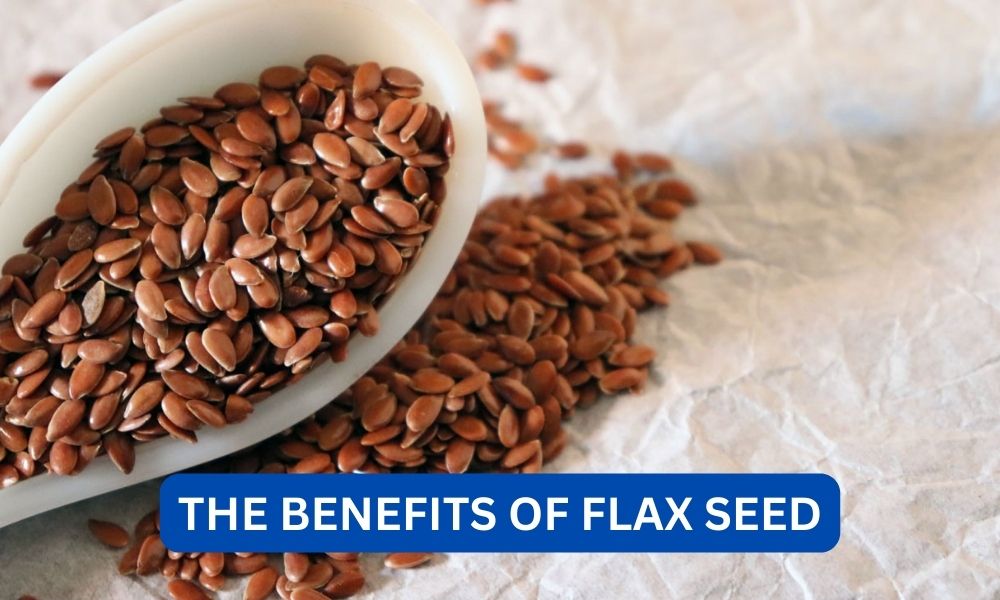Flax seed, also known as linseed, has been used for centuries as a traditional medicine and food source. It is derived from the flax plant, which is native to the Mediterranean region and parts of Asia. In recent years, flax seed has gained popularity as a superfood due to its numerous health benefits. From improving heart health to aiding in weight loss, flax seed has been touted as a must-have in any healthy diet. In this article, we will delve into the benefits of flax seed and explore why it has become a staple in many households.
Contents
What is Flax Seed?
Flax seed is a small, brown or golden-colored seed that comes from the flax plant. It is a rich source of essential nutrients, including omega-3 fatty acids, lignans, and fiber. Flax seed can be consumed in various forms, such as whole seeds, ground seeds, oil, or as an ingredient in foods like bread, cereals, and crackers.
Flax seed has been used for its medicinal properties for thousands of years. Ancient civilizations, such as the Egyptians and Greeks, used flax seed to treat various ailments, including constipation, skin conditions, and inflammation. Today, flax seed is widely recognized for its health benefits and is considered a superfood by many health experts.
Read:What are the benefits of sage?The Nutritional Profile of Flax Seed
Flax seed is packed with essential nutrients that are beneficial for overall health. Here is a breakdown of the nutritional profile of flax seed per 1 tablespoon (10 grams):
- Calories: 55
- Protein: 1.9 grams
- Fat: 4.3 grams
- Carbohydrates: 3 grams
- Fiber: 2.8 grams
- Omega-3 fatty acids: 1.8 grams
- Lignans: 0.3 grams
- Vitamin B1: 8% of the Recommended Daily Intake (RDI)
- Vitamin B6: 2% of the RDI
- Folate: 2% of the RDI
- Calcium: 2% of the RDI
- Iron: 2% of the RDI
- Magnesium: 7% of the RDI
- Phosphorus: 4% of the RDI
- Potassium: 2% of the RDI
Flax seed is also a good source of antioxidants, which help protect the body against free radicals and oxidative stress. These antioxidants include lignans, which are polyphenols found in plants that have been linked to various health benefits.
Health Benefits of Flax Seed
Flax seed has been studied extensively for its potential health benefits. Here are some of the most significant benefits of incorporating flax seed into your diet:
Read:What are the health benefits of dark chocolate?1. Improves Heart Health
Heart disease is the leading cause of death worldwide, and diet plays a crucial role in its prevention. Flax seed has been shown to have a positive impact on heart health due to its high content of omega-3 fatty acids, lignans, and fiber.
Omega-3 fatty acids are essential for heart health as they help reduce inflammation and lower the risk of heart disease. Flax seed is one of the best plant-based sources of omega-3 fatty acids, making it an excellent option for those who do not consume fish, the primary source of these healthy fats.
Lignans, on the other hand, have been linked to a reduced risk of heart disease. They have been shown to lower blood pressure, reduce oxidative stress, and improve blood vessel function.
Lastly, the fiber in flax seed can help lower cholesterol levels, which is a significant risk factor for heart disease. A study published in the American Journal of Clinical Nutrition found that consuming flax seed daily for three months resulted in a significant decrease in total cholesterol and LDL (bad) cholesterol levels.
2. Aids in Weight Loss
Flax seed is a great addition to any weight loss diet. Its high fiber content helps keep you feeling full for longer, reducing the chances of overeating. Additionally, the lignans in flax seed have been shown to have anti-obesity effects by reducing fat accumulation and promoting fat breakdown.
Read:What are the benefits of taking magnesiumA study published in the Journal of Nutrition and Metabolism found that consuming flax seed daily for 12 weeks resulted in a significant decrease in body weight, body mass index (BMI), and waist circumference in overweight and obese individuals.
3. Supports Digestive Health
The fiber in flax seed is beneficial for digestive health. It acts as a prebiotic, promoting the growth of healthy bacteria in the gut. This, in turn, can improve digestion and reduce the risk of digestive disorders, such as constipation and irritable bowel syndrome (IBS).
Moreover, the lignans in flax seed have been shown to have anti-inflammatory properties, which can help alleviate symptoms of digestive disorders. A study published in the Journal of Nutrition found that consuming flax seed daily for four weeks resulted in a significant decrease in markers of inflammation in individuals with IBS.
4. May Reduce Cancer Risk
Flax seed contains lignans, which have been linked to a reduced risk of certain types of cancer, including breast, prostate, and colon cancer. These compounds have been shown to have anti-cancer effects by inhibiting tumor growth and promoting cancer cell death.
A study published in the Journal of Clinical Oncology found that consuming flax seed daily for one year resulted in a significant decrease in tumor growth in women with breast cancer.
5. Promotes Healthy Skin and Hair
The omega-3 fatty acids in flax seed are essential for maintaining healthy skin and hair. These healthy fats help keep the skin hydrated and reduce inflammation, which can lead to skin conditions like acne and eczema. They also promote hair growth and prevent hair loss.
Moreover, the lignans in flax seed have been shown to have anti-aging effects by reducing oxidative stress and protecting against UV damage. A study published in the Journal of Cosmetic Dermatology found that consuming flax seed daily for 12 weeks resulted in a significant improvement in skin hydration and elasticity in postmenopausal women.
How to Incorporate Flax Seed into Your Diet
There are various ways to incorporate flax seed into your diet. Here are some ideas:
- Add ground flax seed to your morning smoothie or yogurt.
- Sprinkle whole flax seeds on top of salads or soups.
- Use flax seed oil as a salad dressing or drizzle it over cooked vegetables.
- Replace eggs in baking recipes with a flax egg (1 tablespoon of ground flax seed mixed with 3 tablespoons of water).
- Use flax seed as a substitute for breadcrumbs in meatballs or meatloaf.
It is essential to note that flax seed is best consumed ground as the whole seeds may pass through the digestive system undigested, limiting their nutritional benefits.
Potential Side Effects and Precautions
Flax seed is generally safe for most people when consumed in moderate amounts. However, some individuals may experience side effects, such as bloating, gas, or diarrhea, when consuming large amounts of flax seed. It is recommended to start with small amounts and gradually increase the intake to avoid these side effects.
Moreover, individuals taking blood-thinning medications should consult their doctor before consuming flax seed as it may increase the risk of bleeding.
Conclusion:
Flax seed is a nutrient-dense superfood that offers numerous health benefits. From improving heart health to promoting weight loss, this tiny seed has a lot to offer. Its versatility makes it easy to incorporate into your diet, and with its long history of medicinal use, it is no wonder that flax seed has become a staple in many households. So, why not add some flax seed to your next meal and reap the benefits of this powerful superfood?









